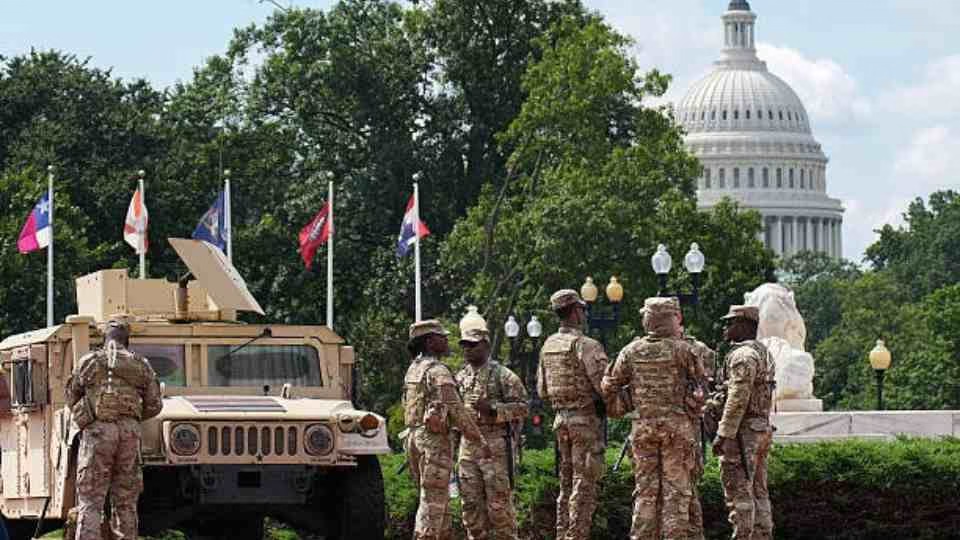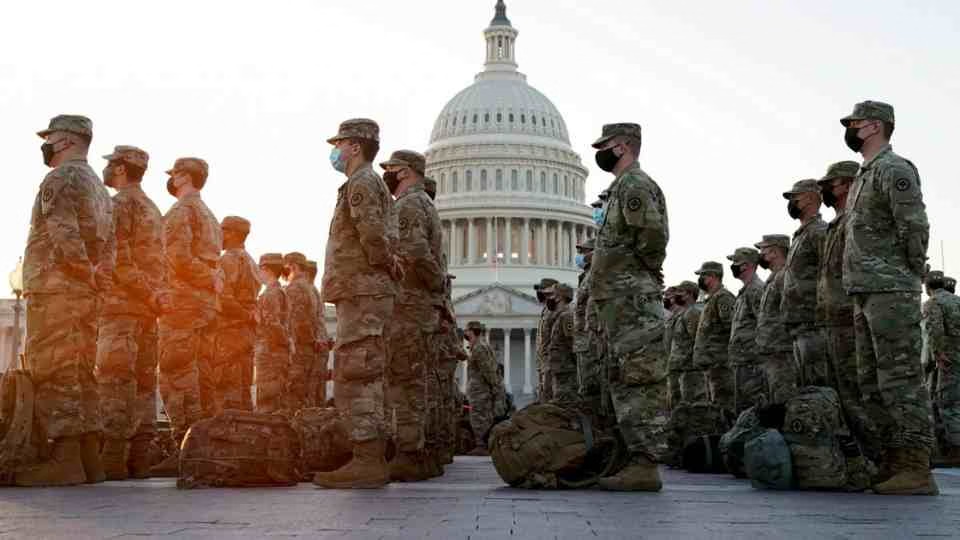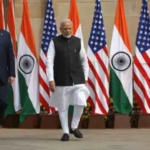In an unprecedented move that has sent shockwaves through the nation’s capital, President Donald Trump announced Monday that he is placing the Washington, D.C., police department under federal control and deploying the National Guard to address what he characterizes as rampant crime and violence in the district.

Speaking from the White House during a press briefing flanked by key administration officials including Defense Secretary Pete Hegseth and Attorney General Pam Bondi, Trump invoked the District of Columbia Home Rule Act to bring the D.C. Metropolitan Police Department under direct federal oversight—a rare and highly contentious action that strikes at the heart of the district’s limited self-governance.
“I’m deploying the National Guard to help reestablish law, order and public safety in Washington, D.C.,” Trump declared to assembled reporters. “Our capital city has been overtaken by violent gangs and bloodthirsty criminals.” The president emphasized that the National Guard troops would be allowed to carry out their duties without restriction, signaling a potentially aggressive approach to law enforcement in the district.

The activation is expected to involve hundreds of D.C. National Guard troops, with up to roughly 800 troops anticipated to be deployed as part of this sweeping federal intervention. This mobilization represents one of the largest peacetime domestic deployments of National Guard forces in Washington since the civil unrest following the assassination of Martin Luther King Jr. in 1968.
The federal takeover extends beyond just National Guard deployment. Officers from ICE, FBI, National Guard, along with local Department of Homeland Security agents will be part of the federal law enforcement presence, creating a multi-agency approach to policing the nation’s capital. Local federal agents in the Washington area have reportedly been placed on standby for potential deployment to the streets.
Trump’s action represents a dramatic escalation of his ongoing criticism of Washington D.C.’s Democratic leadership and crime statistics. The president had previously threatened to federalize the D.C. police department, casting the Democratic-led capital as a place mired in violence, despite local officials disputing his characterization of the city’s safety conditions.
The constitutional and legal implications of this federal intervention are significant. Unlike states, D.C. does not have control over its National Guard, giving the president wide latitude to call on Guard members. Additionally, federal law allows for the district’s police force to be taken over by the federal government for 48 hours if the president deems there to be “special conditions” warranting such action.
The timing of this announcement appears strategically calculated, coming as Trump has intensified his rhetoric about crime in Washington and positioned himself as the law-and-order candidate ahead of future political battles. However, the move has drawn sharp criticism from local officials and civil liberties advocates who view it as an unprecedented federal overreach into local governance.
D.C. Mayor Muriel Bowser’s office indicated that they had not been briefed by the White House on the National Guard deployment plans, highlighting the lack of coordination with local authorities. This absence of consultation has added to concerns about the federal government bypassing established protocols for such significant law enforcement actions.
The deployment comes amid a complex crime landscape in the district. Violent crime in the first seven months of 2025 has dropped by roughly 26% compared to 2024, according to data compiled by the D.C. Police Department, with overall crime falling by approximately 7%. These statistics stand in stark contrast to Trump’s characterization of the city as overrun by criminals.
The president’s invocation of the District of Columbia Home Rule Act marks a direct challenge to the limited self-governance that Washington residents have enjoyed since 1973. The act, which granted the district the right to elect its own mayor and city council, has long been viewed as a cornerstone of local democracy in the nation’s capital, despite the district’s lack of voting representation in Congress.
As federal agents begin patrolling Washington streets alongside National Guard troops, questions remain about the duration and scope of this intervention. The deployment represents a significant test of federal-local relations and could set precedents for how future administrations might handle perceived local governance failures in the district.
The ramifications of this unprecedented action are likely to reverberate through Congress, the courts, and the broader national conversation about federalism, local governance, and the unique constitutional status of the nation’s capital. As Washington residents and officials grapple with this new reality, the full implications of Trump’s federal takeover are only beginning to unfold.






